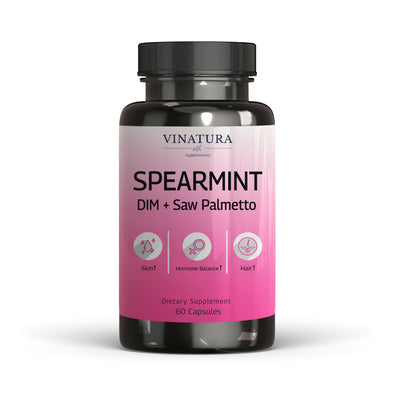
What Is Duckweed? What Are Duckweed Benefits For Humans?
Duckweed is a family of small aquatic plants found everywhere on Earth. Duckweed is a potential nutritional supplement for humans. Through this article, let's explore the answer to the question, "What are duckweed benefits for humans?".
Before exploring further, please read the disclaimer located at the end of this webpage.
What is Duckweed Supplement?

Duckweed is an aquatic plant rich in protein, vitamins, minerals, and antioxidants. It is often used as a vegan or vegetarian alternative to animal-based protein. [1] It can be detected everywhere.
Duckweed supplements are derived from an aquatic plant called Wolffia Globosa. This specific variety of Duckweed has gained attention due to its nutritional value and potential health benefits.
These supplements are typically available in powder or extract form, and they are consumed to take advantage of the plant's high protein content, abundance of vitamins and minerals, and other beneficial compounds. [2]
The potential benefits associated with Mankai duckweed supplements include support for weight management and the provision of essential nutrients like vitamin B12. Additionally, Mankai duckweed is known for its antioxidant properties, which can contribute to overall health and well-being. [2]
Learn more: Is Duckweed Edible? What Does Duckweed Taste Like?
What Are Duckweed Benefits For Humans?
Visceral Fat Loss
Duckweed was incorporated in the green MED diet (Mediterranean diet - a rich source of polyphenols benefits for adiposity) in a 2022 study. Results showed that people using this diet were able to reduce visceral fat. [3]
Visceral fat can increase insulin resistance [4] even if you have never had diabetes or prediabetes.
Research has found that this may be due to a retinol-binding protein that increases resistance to insulin secreted by this type of fat. Visceral fat can also rapidly increase blood pressure. [5]
Therefore, reducing visceral fat is extremely necessary.
Good Source Of Polyphenols And Flavonoids
Flavonoids play roles in growth, photosynthesis, biological protection, and various processes such as UV radiation resistance, disease resistance, and adaptation to harsh environmental conditions.
Moreover, flavonoids also exhibit physical activities relevant to human health, including antiviral, antifungal, and antibacterial properties and crucial antioxidant effects.
Certain flavonoids like quercetin and rutin have been studied and demonstrated to have the ability to inhibit the invasion of the SARS-CoV-2 virus, particularly in the context of treating COVID-19. [6]
Flavonoids are a type of polyphenol belonging to the polyphenol family—a large group of plant-derived chemical compounds. Therefore, the presence of polyphenols, including flavonoids, in Duckweed can positively affect the human body.
Polyphenols in Duckweed, including flavonoids, possess antioxidant properties that help protect cells from damage caused by free radicals and oxidative processes.
This can contribute to the overall health benefits for humans. [6]. Duckweed is rich in C-glycosyl-flavonoids, which may benefit the human diet thanks to its antioxidant and anti-cancer properties. [6]
Provides Vitamin B12
In exploring the benefits of duckweed for humans, it is worth noting that it has attracted attention for Duckweed's potential as a rich source of Vitamin B12.
Duckweed has the potential to provide a high-quality alternative source of animal protein and has the potential as a bioavailable source of vitamin B12.
Vitamin B12 helps keep nerves healthy and supports the production of DNA and red blood cells. In addition, duckweed benefits for humans also include maintaining normal brain function. [7]
Enhance Immunity And Intestinal Health
Duckweed is considered to have traditional uses as an antipruritic, antimalarial, astringent, antiseptic, diuretic, antipyretic, and sleeping aid. Studies have demonstrated its antibacterial, antioxidant, cytotoxic, and immunomodulatory effects. [8]
In addition, studies have shown that Duckweed may also benefit intestinal health and aid in preventing certain digestive disorders. Duckweed exhibits anti-inflammatory and antibacterial activities, reducing the adverse effects of gamma radiation on the small intestine.
The therapeutic plant substance, Lemnan, derived from Duckweed, contains the active ingredient pectin polysaccharide, which enhances the immune barrier function of the small intestine. [9]

How Does Duckweed Work On Humans?
Certain species of Duckweed contain high protein content, reaching up to 45%, providing all essential amino acids following FAO references. This can support the growth and development of the human body. [10]
It can supply energy and macro/micronutrients to the human body, maintaining health and supporting body structure when consumed as a food source.
Duckweed's nutritional composition encompasses macro and micronutrients, including proteins, carbohydrates, fats, minerals, vitamins, and phytochemicals that significantly contribute to duckweed benefits for humans. [10]
Incorporating Mankai duckweed into your shake can help boost nutrients, especially in protein and other essential elements. You can combine Duckweed with fruits, vegetables, etc., to increase the flavor and make it more delicious.
Learn more: Duckweed Nutrition Facts and Everything You Need to Know
Side Effects of Duckweed
Duckweed has no reported significant side effects when used in therapeutic doses. However, besides duckweed benefits for humans, it contains notable levels of calcium oxalate, a compound that may contribute to the development of kidney stones.
In addition, if Duckweed is grown in a polluted environment, it can be contaminated with environmental toxins. Duckweed can absorb toxins from that dirty water. Using these contaminated duckweeds will not be suitable for your health. [8]
Other Uses Of Duckweed In Medicine
A Valuable Source Of Protein
What is Duckweed used for? Duckweed is a functional food that provides nutrients to the human body.
Duckweed is recognized as a valuable source of protein, containing essential amino acids. Its high protein content makes it a potential supplement for individuals seeking alternative protein sources. [11]
Pharmaceutical Resources
Compounds extracted from Duckweed are being investigated for their potential medicinal properties, including antioxidant and anti-inflammatory effects. These compounds may have applications in the development of pharmaceutical drugs. [8]
Duckweed encompasses many applications, including its potential as a nutritional supplement, biofuel feedstock, water purifier, and animal feed.

Dosage And Precautions When Using Duckweed
The recommended daily dosage of herbal medicine in liquid form for internal use is 3.10 grams. The suggested dosage is 1-2 grams per day in powdered form. [8]
Regarding external use, the general rule is that more is better. [8]
Evaluating whether Duckweed is good or bad depends on many factors. As with any herbal supplement or remedy, you should consult a healthcare professional to determine the appropriate dosage based on your health condition and personal needs. Additionally, the possibility of drug interactions should be considered.
If your body has adverse reactions, you should stop and consult a doctor. Furthermore, you can start with a small dose and gradually increase it to give your body time to adapt.
Frequently Asked Questions
Where To Buy Duckweed Powder?
You can buy Duckweed Powder from health food stores, retailers, e-commerce sites, etc. You need to pay attention to choosing a reputable supplier to ensure the quality of the product to gain full of Duckweed health benefits.
Is Duckweed A Superfood?
Research in 2019 recognized Duckweed as a superfood. It can control blood sugar after consuming carbohydrates, providing nutrients, protein, and good support for human health. [11]
Conclusion
Duckweed has many potential health benefits thanks to its high protein content, rich nutritional profile, and various bioactive compounds. Duckweed promises to be a great dietary supplement for humans. Hopefully, you have the answer to the question "What are duckweed benefits for humans?" through this article.
References
- [1] Duckweed (Lemnaceae) for potentially nutritious human food: A review. (2023). Food Reviews International. https://www.tandfonline.com/doi/abs/10.1080/87559129.2021.2012800
- [2] Diotallevi, C., Angeli, A., Vrhovsek, U., Gobbetti, M., Shai, I., Lapidot, M., & Tuohy, K. (2019). Measuring polyphenols metabolism in mankai duckweed: a novel aquatic and amino rich plant protein source. Fmach.it, 55. http://hdl.handle.net/10449/58319
- [3] Hila Zelicha, Klöting, N., Kaplan, A., Anat Yaskolka Meir, Ehud Rinott, Gal Tsaban, Yoash Chassidim, Matthias Blüher, Ceglarek, U., Isermann, B., Stümvoll, M., Rita Nana Quayson, Martin von Bergen, Engelmann, B., Rolle-Kampczyk, U., Sven-Bastiaan Haange, Tuohy, K., Diotallevi, C., Ilan Shelef, & Hu, F. B. (2022). The effect of high-polyphenol Mediterranean diet on visceral adiposity: the DIRECT PLUS randomized controlled trial. BMC Medicine, 20(1). https://doi.org/10.1186/s12916-022-02525-8
- [4] Lebovitz, H. E., & Mary Ann Banerji. (2005). Point: Visceral Adiposity Is Causally Related to Insulin Resistance. Diabetes Care, 28(9), 2322–2325. https://doi.org/10.2337/diacare.28.9.2322
- [5] Faria, A. N., Flexa, F., Ferreira, S., & Maria Teresa Zanella. (2002). Impact of Visceral Fat on Blood Pressure and Insulin Sensitivity in Hypertensive Obese Women. Obesity Research, 10(12), 1203–1206. https://doi.org/10.1038/oby.2002.164
- [6] Pagliuso, D., Eusebia, C., Grandis, A., Lam, E., Marcelo, & Marcos Silveira Buckeridge. (2020). Flavonoids from duckweeds: potential applications in the human diet. RSC Advances, 10(73), 44981–44988. https://doi.org/10.1039/d0ra06741e
- [7] Kaplan, A., Hila Zelicha, Gal Tsaban, Anat Yaskolka Meir, Ehud Rinott, Kovsan, J., Novack, L., Thiery, J., Ceglarek, U., Burkhardt, R., Willenberg, A., Amir Tirosh, Ioav Cabantchik, Stampfer, M. J., & Shai, I. (2019). Protein bioavailability of Wolffia globosa duckweed, a novel aquatic plant – A randomized controlled trial. Clinical Nutrition, 38(6), 2576–2582. https://doi.org/10.1016/j.clnu.2018.12.009
- [8] Ali Esmail Al-Snafi. (2019, August 9). Lemna minor: Traditional Uses, Chemical Constituents and Pharmacological Effects-A Review. ResearchGate; unknown. https://www.researchgate.net/publication/335082849_Lemna_minor_Traditional_Uses_Chemical_Constituents_and_Pharmacological_Effects-A_Review
- [9] S.L. Kalmakhelidze, M.E. Gogebashvili, N.I. Ivanishvili, T.V. Sanikidze, D.P. Museridze, & G.L. Ormotsadze. (2021). Phyto Therapeutic Treatment of Radiation-Induced Typical Morphological Changes of Small Intestine. Radiobiology and Radiation Safety, 1(2), 87–92. https://doi.org/10.48614/rrs120213307
- [10] Duckweed - a potential high-protein feed resource for domestic animals and fish. (2024). Cipav.org.co. https://lrrd.cipav.org.co/lrrd7/1/3.htm
- [11] Mankai duckweed plant found to offer health benefits -- Ben-Gurion University research. (2019, August 5). EurekAlert! https://www.eurekalert.org/news-releases/599067
Author

Product Disclaimer
Including an ingredient or study does not evaluate, endorse, or recommend any Vinatura product or any third-party product. Some ingredients discussed may not be used in any Vinatura product.
The content of the articles has not been evaluated by the Food and Drug Administration (FDA) and is not intended to promote or endorse any specific product. Any products sold on this website are not intended to diagnose, treat, cure, or prevent any disease.
Opinions and Endorsements
Any claims, statements, or opinions expressed in the articles are those of the author(s) and do not necessarily reflect the views or opinions of the manufacturers of the dietary supplement products. The products sold on this website are separate from the content of the articles and are not directly endorsed or associated with the information presented here.
Liability Disclaimer
The author(s) of the articles, website, and manufacturers of the dietary supplement products do not assume any liability for any potential consequences arising from the use of the information provided in the articles. Ingredient effects, dosages, and safety vary by individual, formulation, and context; some ingredients interact with medications or may be unsuitable during pregnancy or lactation. It is recommended that individuals consult with a qualified healthcare professional before making any dietary or lifestyle changes, including the use of dietary supplements.
Product Usage
Please refer to the product labels and packaging for specific usage instructions and guidelines for the dietary supplement products sold on this website.
Customer Support
For any concerns or questions regarding the dietary supplement products, please contact our customer support team, who will be more than happy to assist you.





Leave a Comment
Be the first to comment.
What do you think?